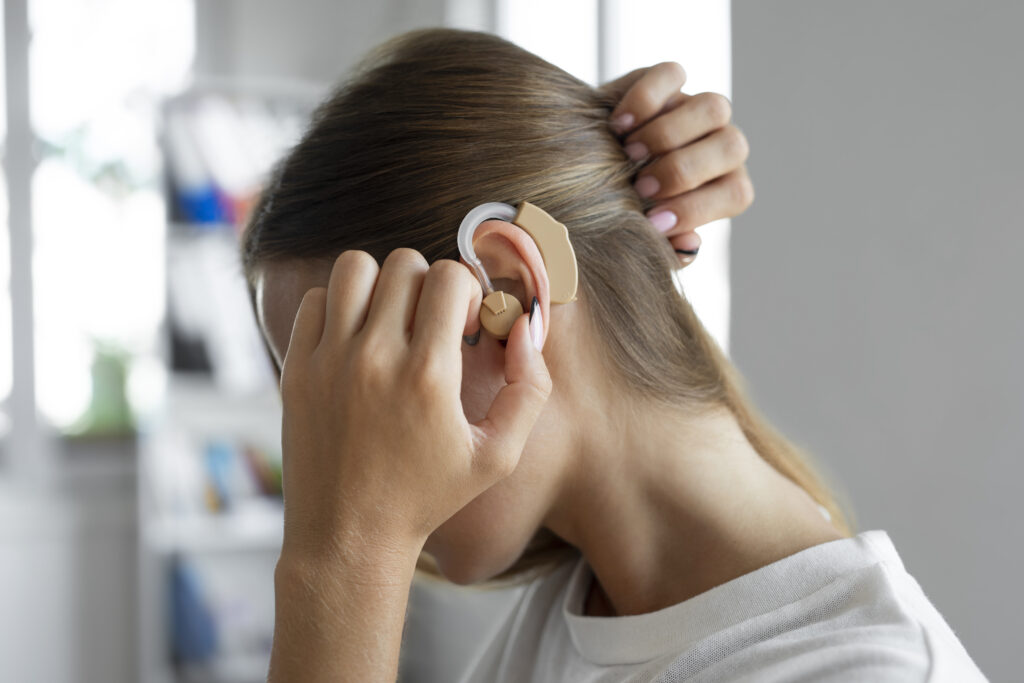Tinnitus, the perception of ringing or buzzing in the ears without an external source, affects millions of people worldwide. For residents of Kitchener and the surrounding area, finding relief can significantly improve quality of life. With advancements in technology and specialized care, local clinics are stepping up to provide effective tinnitus management solutions.
Understanding Tinnitus: What Is It?
Tinnitus is not a condition itself but a symptom of an underlying issue, such as hearing loss, ear injury, or circulatory system disorders. The sound may vary in pitch, intensity, and duration, and it can occur in one or both ears. While the experience of tinnitus is highly personal, it often disrupts daily life, sleep, and overall well-being.
Common Causes of Tinnitus
There are numerous potential causes of tinnitus, making accurate diagnosis crucial for effective treatment. Common triggers include:
Hearing Loss: Age-related or noise-induced hearing loss is a leading cause.
Ear Blockages: Earwax build-up or middle ear infections can exacerbate symptoms.
Exposure to Loud Noises: Frequent exposure to high-decibel environments can damage the inner ear.
Medications: Certain drugs, such as high doses of aspirin, may cause or worsen tinnitus.
Chronic Conditions: High blood pressure, diabetes, and other health issues can also be contributing factors.
Why Professional Help Matters
Tinnitus can significantly impact mental health, leading to stress, anxiety, and even depression. Tinnitus clinic in Kitchener offers tailored treatment plans that address the root causes and mitigate the effects of tinnitus. These clinics employ a variety of diagnostic tools to understand the specific nature of your condition and recommend appropriate solutions.
Treatment Options Available at Tinnitus Clinics
Modern tinnitus clinics provide a range of treatments that combine technology, therapy, and medical expertise. Here are some of the most effective approaches:
1. Hearing Aids
Many individuals with tinnitus also experience hearing loss. Advanced hearing aids amplify external sounds, which can mask the internal ringing and improve auditory clarity. Some hearing aids are specifically designed with tinnitus-masking features.
2. Sound Therapy
Sound therapy involves the use of external noises, such as white noise or nature sounds, to mask tinnitus. Devices like sound machines or tinnitus-specific apps can help reduce the perception of ringing.
3. Cognitive Behavioural Therapy (CBT)
CBT focuses on changing negative thought patterns associated with tinnitus. It’s a proven method for reducing the psychological impact of chronic conditions, helping patients manage their symptoms more effectively.
4. Tinnitus Retraining Therapy (TRT)
TRT combines counselling and sound therapy to help the brain reclassify tinnitus as a neutral sound. Over time, this approach can make tinnitus less noticeable and intrusive.
5. Lifestyle Modifications
Managing stress, maintaining a healthy diet, and avoiding triggers like caffeine or nicotine can significantly alleviate symptoms. Clinics often offer guidance on lifestyle changes tailored to individual needs.
What to Expect During Your Visit
When visiting a tinnitus clinic, the process typically begins with an in-depth assessment. Audiologists and hearing specialists will:
Conduct hearing tests to identify any underlying hearing loss.
Evaluate your medical history to pinpoint potential causes.
Discuss the severity of your tinnitus and its impact on daily life. Based on these findings, a customized treatment plan will be developed.
The Role of Technology in Tinnitus Management
Advances in technology have revolutionized tinnitus treatment. From smartphone apps to wearable devices, these innovations make it easier than ever to manage symptoms on the go. For instance, apps like ReSound Relief provide calming sounds and relaxation exercises tailored to tinnitus patients.
Support Groups and Community Resources
Dealing with tinnitus can feel isolating, but you’re not alone. Many communities, including Kitchener, offer support groups where individuals can share experiences, coping strategies, and encouragement. Online forums and social media groups also provide a platform to connect with others facing similar challenges.
When to Seek Help
If tinnitus begins to interfere with your daily life, work, or relationships, it’s time to seek professional help. Persistent or worsening symptoms may indicate an underlying condition that requires medical attention. Early intervention often leads to better outcomes, so don’t hesitate to reach out to specialists.
Tinnitus can be a disruptive and frustrating condition, but relief is within reach. Clinics like the Tinnitus clinic in Kitchener offer comprehensive solutions to help patients regain control of their lives. Whether through sound therapy, advanced hearing aids, or lifestyle modifications, tailored treatment plans can significantly reduce symptoms and improve overall well-being. If you’re struggling with tinnitus, don’t wait—take the first step toward relief today.

